A randomised controlled, single-blind trial of the efficacy of Reiki at benefitting mood and well-being
DATE
2011
AUTHORS
Bowden D, Goddard L, Gruzelier J
REFERENCE
Evidence-Based Complementary and Alternative Medicine, 2011: Vol 2011; Article ID: 381862
https://new.hindawi.com/journals/ecam/2011/3 81862/
METHODOLOGY
Randomised controlled trail. Reiki was given by non-contact method. The Reiki practitioner sat behind participants (who had headphones on listening to guided meditation and were also blindfolded) and delivered Reiki or not for the control group.
N=40 (20 per group). Sample size calculated to aim for 17 in each group. 20 participants had high levels of anxiety and/or depression based on questionnaires but were not being treated =high mood groups: Reiki or control, low anxiety and depression levels = low mood groups: Reiki or control – 4 subgroups.
A variety of questionnaires were used for all participants to assess Depression, Anxiety and Stress (DASS score) amongst other things.
RESULTS AND COMMENTS
1) Sample size was calculated based on 2 groups with 17 in each, however, the analyses was done with the four groups dependent on mood. 2) The presentation of the results was confusing in places due to the numbers of groups and parameters being compared. When the small mood groups were compared, with the session and reiki there were statistically significant results for total DASS, anxiety and stress but not depression. 3) The authors claim that Reiki has a beneficial effect on stress from baseline to after treatment


